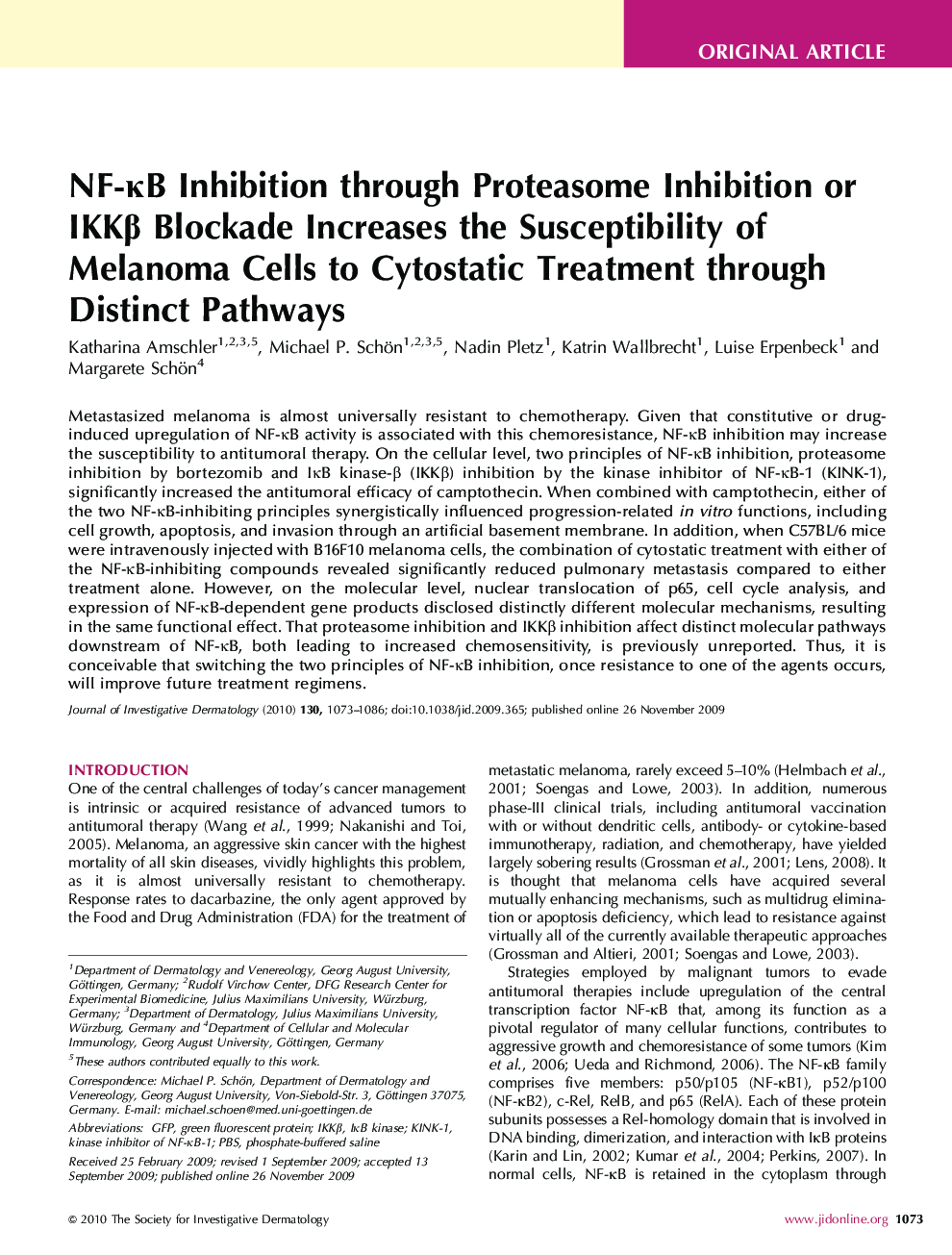| Article ID | Journal | Published Year | Pages | File Type |
|---|---|---|---|---|
| 3216092 | Journal of Investigative Dermatology | 2010 | 14 Pages |
Metastasized melanoma is almost universally resistant to chemotherapy. Given that constitutive or drug-induced upregulation of NF-κB activity is associated with this chemoresistance, NF-κB inhibition may increase the susceptibility to antitumoral therapy. On the cellular level, two principles of NF-κB inhibition, proteasome inhibition by bortezomib and IκB kinase-β (IKKβ) inhibition by the kinase inhibitor of NF-κB-1 (KINK-1), significantly increased the antitumoral efficacy of camptothecin. When combined with camptothecin, either of the two NF-κB-inhibiting principles synergistically influenced progression-related in vitro functions, including cell growth, apoptosis, and invasion through an artificial basement membrane. In addition, when C57BL/6 mice were intravenously injected with B16F10 melanoma cells, the combination of cytostatic treatment with either of the NF-κB-inhibiting compounds revealed significantly reduced pulmonary metastasis compared to either treatment alone. However, on the molecular level, nuclear translocation of p65, cell cycle analysis, and expression of NF-κB-dependent gene products disclosed distinctly different molecular mechanisms, resulting in the same functional effect. That proteasome inhibition and IKKβ inhibition affect distinct molecular pathways downstream of NF-κB, both leading to increased chemosensitivity, is previously unreported. Thus, it is conceivable that switching the two principles of NF-κB inhibition, once resistance to one of the agents occurs, will improve future treatment regimens.
